Reviews
Quentin Tarantino
USA, 1994
Credits
Review by Lindsay Peters and Kartik Nair
Posted on 11 February 2011
Source Miramax DVD
Categories Blind Spots
Any of you fucking pricks move, and I’ll execute every motherfucking last one of ya!
Introduction by Lindsay Peters
When the opportunity came up to introduce this Blind Spot review, it had been at least 10 years since I last watched Pulp Fiction. I’ll admit that it has taken me awhile to get past Tarantino’s unwavering predilection for hyperrealistic exploitation. But the 1995 home video release of Pulp Fiction marked my introduction not only to excessive cinematic violence, but to the concept of the television pilot and, more importantly, narrative experimentation. And now, having fully appreciated the black-and-white restraint of Kill Bill Vol. 2 and the ingenious use of multilingualism in Inglourious Basterds, I realize that complaining about excessive violence in a Quentin Tarantino movie is like complaining about too many actors in a Robert Altman production—each has made their own significant contribution to American film style.
With its time-shifting narrative structure and taut, culture-riffing dialogue, today Pulp Fiction readily maintains its position as a hallmark in American independent cinema. It’s an essential film not only because it recalls a time when the Weinstein name had as much significance as Mayer and Warner put together. Upon its release in 1994, Pulp Fiction ushered in a new era of spectatorial address. With a narrative as intricately structured as its rapid-fire cultural references, Tarantino made a film fit for an audience of intelligent filmgoers raised on Scorsese, Coppola, and Corman that would soon expand even further with the stylistic experimentations of Soderbergh, Nolan, and the Andersons (P.T. and Wes).
The self-reflexive dialogue found throughout Pulp Fiction hints at what would soon become a self-evident fact: that what matters above all to Tarantino is filmmaking. The instantaneous designation of the Royale With Cheese exchange and the Travolta-Thurman dance-off as classic cinematic moments proves that Tarantino is a great writer and director of the individual scene—a fact cleverly masked by the fragmentary structure of the film. The constant reminders of everyday Los Angeles, replete with dusty pink diners and cleanser-stocked garages, now marks a welcome contrast to the high artifice of the world the Kill Bill movies inhabit. And while Inglourious Basterds contains the best plot of Tarantino’s career thus far, its period setting proved to be something of a limitation for the director’s penchant for pop culture reference and kung fu worship. Pulp Fiction, a film steeped in so many layers of blood-soaked nostalgia, is now an icon for a bygone era of American independent cinema, and is the quintessential Quentin Tarantino film.
Review by Kartik Nair
I’ve been there. That painful moment in which the inside of the neighborhood Starbucks can suggest, not feebly, what the Spanish Inquisition must have felt like. A simple admission can swerve conversations into an instantly recognizable cul de sac of distinguished cruelty:
I haven’t seen anything Quentin Tarantino made before Kill Bill.
You haven’t seen Pulp Fiction?
No.
You haven’t seen Reservoir Dogs?
Nope.
But Jackie Brown?
Like I said…
But you must have seen Pulp Fiction…
Ah, the Great Filmographic Inquisition. A hundred years ago, those methodical blows would have been bibliographic: Proust perhaps, or Hardy. Today, the ritual is hipper, driven simultaneously by film’s saturation of pop culture and the high-cultural snobbery of auteur cinema. Hence the affected incredulity over anyone having escaped Pulp Fiction, accompanied always by the triumphant satisfaction (affected into blankness) of insiderhood. Relax people, it’s only a movie.
Or is it, I wondered as I popped Pulp Fiction into my DVD player. After all, Pulp Fiction has over time come to emblematize the art of studied idiosyncrasy, its meteoric energy inspiring a long tail of filmmakers all over the world (most prominently Guy Ritchie). A dictionary definition of ‘Pulp’ swam silently on to the screen. This first blow was exactly what I expected, and exactly why I’d assiduously avoided the film, this feeling that one had entered an airless chamber of dated, if disciplined, indulgence.
What followed was two and half hours of conversations and chases, involving petty criminals, hit-men, a gangster, a gangster’s wife, a prize-fighter, and a mysterious briefcase. To call this loose amalgamation a plot would be inappropriate: like the briefcase, of which we never see the cargo but only its reflection, luminous and seductive, Pulp Fiction is an exterior without an interior, a pseudo-plot that convenes and dispatches styles and stars with reckless aplomb, a surface off which to bounce the extreme and lithe cinematic erudition of one Quentin Tarantino.
What compels the exercise together is tone, because that’s what the film is, tone, sometimes subdued to a hallucinatory hum, as with John Travolta and Uma Thurman dancing at Jack Rabbit Slim’s, or to the minatory vibration we feel in the back-room where Bruce Willis and Ving Rhames are being held in bondage. Even at its most obvious - the phony rear-projection while Esmarelda drives her cab - Pulp Fiction is powered along by Tarantino’s brash confidence. The surprise is that it works. I watched it half-wishing, half-dreading a misstep: one false note in its long passages of diner-table conversation and bullet-punctured chases, a false note that could embarrass Tarantino’s muscular direction and kill the mood for this shrine of so much cinephiliac masturbation. It would mean release from the tyranny of perfection, and, better still, a vindication of my tardiness.
Of course, that note never came. Tarantino’s uncanny gift and the film’s most influential legacy is the switch, soundless and sexy, between genres, able at one moment to be a noir film and at another a horror film, sometimes a screwball comedy and at other times a gangster film. If I’d seen it in 1995, it would no doubt have been lost on me. Watching it today, I see Pulp Fiction for what it really is: the kind of cinematic animal that can blast through the sanctum of the art film with the double-barrel of an action thriller without breaking a sweat. More than fifteen years after its release, Pulp Fiction remains intimidatingly, expertly, explosively intact. Like Breathless or Bonnie and Clyde, Tarantino’s film has escaped the calamity that ultimately tames most pop-cultural artifacts once on the cutting edge of contemporary cool: age.
Wait, you haven’t seen Breathless?
More Blind Spots
-

Pee-wee’s Big Adventure
1985 -

The Matrix
1999 -

Amélie
2001 -

The Breakfast Club
1985 -
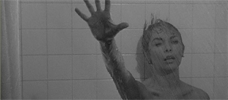
Psycho
1960 -
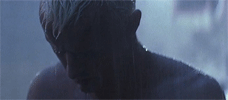
Blade Runner
1982 -
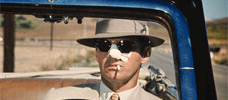
Chinatown
1974 -

Monty Python and the Holy Grail
1975 -

Rocky
1976 -
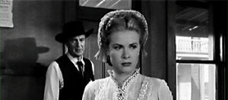
High Noon
1952 -
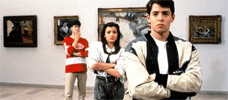
Ferris Bueller’s Day Off
1986 -
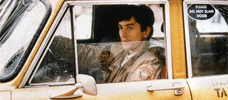
Taxi Driver
1976 -
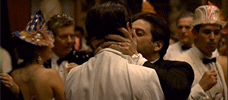
The Godfather
1972 -
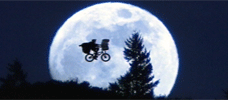
E.T.
1982 -
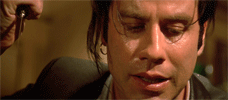
Pulp Fiction
1994
We don’t do comments anymore, but you may contact us here or find us on Twitter or Facebook.



